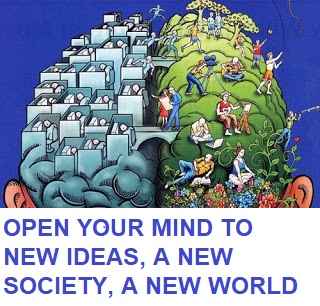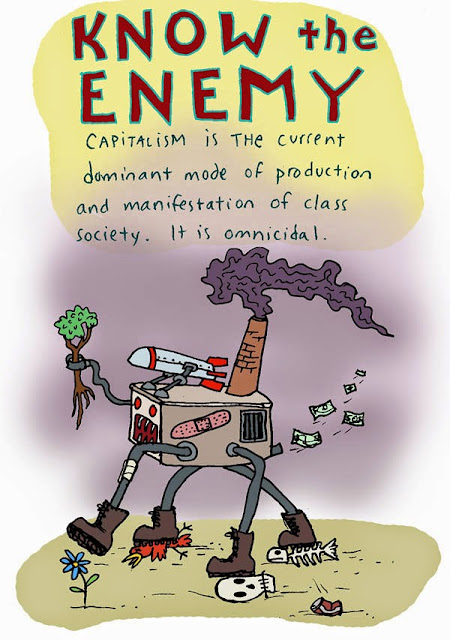The environmental crises are shaking the very foundation of capitalism. Misery prevails everywhere. Socialism was a necessity long before global warming and the promise of renewable energy. Because of the climate crises socialism is incalculably more urgent now because the only fate under capitalism is death or barbarism for much of the population of our planet.
While capitalism has provided the knowledge and the technology which are necessary for a socialist reorganisation of society, it long ago ceased to provide for the simple wants and needs of the working people who wish prosperity and peace instead of bloodshed and destruction. We want security, not insecurity. We want decent lives for ourselves and our families, plentiful homes, hospitals and schools for our communities. We seek democracy and freedom rather than a totalitarian bureaucracy. Despite its huge industries, intricate technology and abundant natural resources, capitalism is unable to provide us with these basic needs. It is unable to avoid wars nor racial and religious conflicts. Under capitalism, a handful of oligarchs and plutocrats control the wealth and power of the planet. To protect the vested interests they possess the power of life and death over the rest of us.
The insanity of this system of capitalism is that it creates inequality and poverty when it is capable of producing an abundance in relation to human needs that can be shared by all. Capitalists are united against the workers and they are in competition against each other and against their foreign commercial counterparts. In business, the bigger, stronger and richer swallow up the weak and small. They all try to under-cut and out-sell each other on the market because the mainspring of capitalist production is profit, not production for peoples use.
That is why the World Socialist Movement says socialism is a necessity. As long as capitalism endures, the climate crises will only be accentuated. There will be greater and wider environmental damage. The benefits of new technology, artificial intelligence and robotics cannot be distributed to mankind within the capitalist system other than for negative purposes such as unmanned fighting drones. Meantime, more wealth becomes polarised at one end, and poverty at the other.
We see the phenomenon of poverty in the midst of plenty. A few countries become a capitalist colossus, while other countries are reduced to penury, not prosperity. It has produced privation and totalitarianism in most of the world. The impending consequences of climate change will continue to make the rich richer, and the poor poorer. It will continue to divert more and more resources, to protect the monopoly of the wealth of the few.
How can we trust this system of capitalism? How can we place faith in its politicians to develop the planet’s bountiful productive power for the welfare of mankind? Capitalism produces more and consumes more leading towards perhaps not the extinction of our human species but most probably to the possible collapse of civilisation.
Governments have gathered together experts from all over the world, internationalised science, and failed to provide any resolution to the ecological emergency. Without the object of profits as its central aim, socialism can come up with some practical and pragmatic global policies to implement. It is only by socialist planning in a world society that we have any real success in combating the problems of climate change and the destruction of our environment.
Socialism, and only socialism, will create a true world society, a world without national barriers, without international rivalries, without master and slave and, hence, a world where we can live in harmony with nature. Socialism can guarantee cooperation and collaboration and coordination without compromise or concessions to any government’s or corporation’s vested interest. Socialism will end the root causes of the inequities and evils of modern capitalist society, by abolishing the private ownership of the means of production, the factories, mines, machinery and land, which produce the necessities of life. With socialism, production will become the property of society, owned in common, producing for use, for the general well-being of the people as a whole. With the abolition of the private ownership of the means of life and with it the factor of profit as the primary motivation of production, the sharp divisions of society between humanity and nature will disappear.
Then, and only then, will society be in a position to become a world of abundance and plenty for all, for socialism will create a new world of genuine solidarity between the peoples of the Earth?
A socialist system will change the form and type of governments that exist today to one that are administrative bodies regulating production and consumption. They will not be the instruments of the capitalist class to advance the economic rule of big businesses and their profits. Socialism will not concern itself with profits but with providing decent lives for all the people around the world. World socialism will assess the industrial potential of the world, determine its resources, the needs of the people and plan production with the aim of increasing the standards of living for people, creating abundance, increasing leisure and opportunity for cultural enjoyment while all the time maintaining that such developments remain sustainable and in harmony with the requirements of the natural world.
Today, we possess all the requirements necessary for socialism to deliver the good things of life. Mankind has developed marvellous technology. The discovery and control of renewable energy have not only made it more possible for mankind to control our effect upon the environment but also to create a fruitful life of abundance. Only socialism can place science where it properly belongs: in the service of the people and not serving the needs of the stock market and shareholders.
Humanity is at a crossroads. We can continue down the road of capitalism where the destination is chaos, conflict, poverty and barbarism, or we can take the socialist path toward true freedom, prosperity, peace and security, toward a society of plenty for all which would end the exploitation of man by man for all time.









